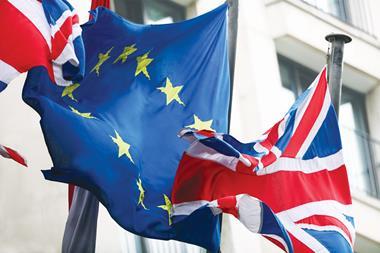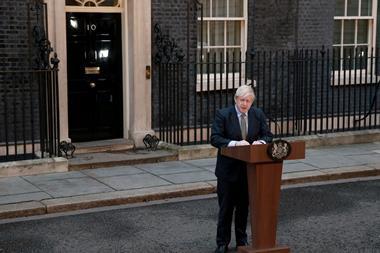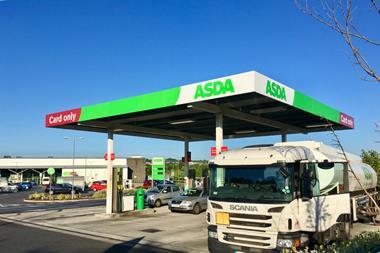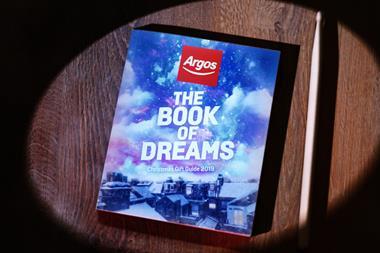In the first of a four-part series, Richard Lim takes a look at what the impending election will mean for the retail sector. Without too much in the way of manifestos to go on, he starts with Brexit.
Until all the parties have published their full prospectuses for the nation, I thought I’d start our election analysis where the parties themselves have spent the most time to date: Brexit. I hear you groaning but it is, ostensibly, what began this election and that’s a good place to start.
What I’ve been hearing from retailers since the whole Brexit saga began is that they really want certainty over what is going to happen next. All parties have promised to resolve the Brexit question, though all but one can be assessed as providing any real certainty.
Brexit proposals
The offering from the Conservatives has been described by the prime minister (to much mirth) as “oven ready”. Put simply, Boris Johnson argues that if he achieves a majority, the current withdrawal agreement will sail through parliament.
He even said that every single Conservative candidate standing in this election has pledged to endorse his deal. This, according to Johnson, would see the UK leave the EU by the end of January. There would then be a trade deal to conclude the “future relationship”.
Johnson is equally certain this deal could be done by the end of the year. While this gives clarity of sorts, the shape of any future relationship hasn’t been detailed and the timeframe is incredibly tight.
“While the chance of the Lib Dems forming a government is very slim, I wouldn’t bet my mortgage against them having some influence over the next one”
On the other hand, while what the Labour party is offering is clear, the outcome of their proposals is anything but. In the first three months of a Labour government, a new withdrawal agreement would be negotiated. Once that has been agreed, Labour would then take the next three months putting the deal to the British people in a referendum that would also include the option to remain in the EU.
So, it would be March until a new withdrawal agreement and June until we know if the UK is leaving the EU or not. No word yet on any ‘future relationship’. Clarity, to be sure, but miles (or kilometres for the europhiles) from certainty.
Finally, we also need to look at the Liberal Democrats. While the chance of them forming a government is very slim, I wouldn’t bet my mortgage against them having some influence over the next one. It also happens there is nothing uncertain about their Brexit stance whatsoever. If they get their way, they would simply revoke the Article 50 letter and we’d remain in the EU. No ifs, no buts.
Outright majority unlikely
However, these proposals can only be implemented as-is if one party wins an outright majority, something that is far from certain. There are myriad permutations of hung parliaments and each will find its own unique route toward, or away from, Brexit.
However, there are two scenarios most likely to come to pass. The Tories are the largest party, taken over the line with the support of newly minted Brexit Party MPs and/or the DUP. Or the Tories are the largest party but Labour, the SNP, Lib Dems et al (a ‘remain alliance’ of sorts) are able to form a majority.
In the first scenario, Johnson’s “oven-ready” deal is unlikely to cut the mustard. Having exiled the softest of Brexiteers from the Conservatives and being bolstered by Brexit Party ultras, even if the PM could convince Brexit Party MPs to support a deal, it won’t be the one on the table currently. That would necessitate another renegotiation and that is something I suspect that Brussels simply will not put up with.
“The remain-leaning parties have been good at telling us what they don’t want but they’ve singularly failed to come together around a workable solution”
The most likely outcome in the event of the Tories needing the support of the Brexit Party or the DUP (who are also opposed to this deal) to govern is, come the end of January, the UK will most likely leave without a deal.
Trickier to predict is what happens in the event of scenario two. The remain-leaning parties have been good at telling us what they don’t want but they’ve singularly failed to come together around a workable solution. Don’t expect this to change on December 13.
While I suspect they will find common cause around a second referendum, the route to this will be far from simple – with Labour insisting on renegotiations while the other parties will almost certainly want some quid pro quo for handing Jeremey Corbyn the keys to Number 10.
Ironically, where hung parliaments would normally spell compromise, in this election it will likely push Brexit to the far extremes of leave or remain.
Election: Whatever the outcome, Brexit will mean a government of extremes
- 1
 Currently reading
Currently readingOpinion: Whatever the election outcome, Brexit will mean a government of extremes
- 2
- 3

































No comments yet